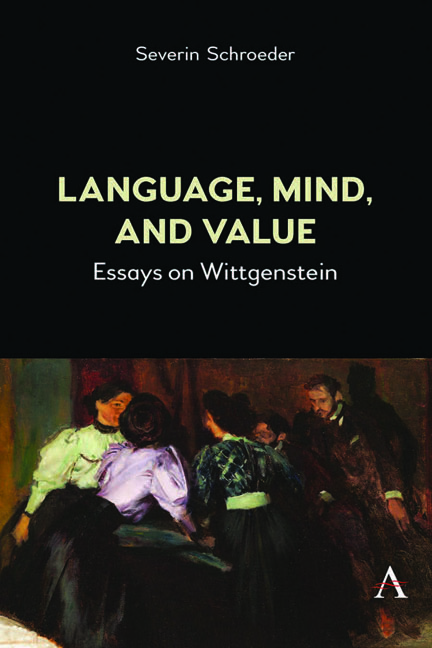2 - Analytic Truths and Grammatical Statements
Published online by Cambridge University Press: 13 April 2024
Summary
Wittgenstein speaks not only of ‘grammatical rules’ but also of ‘grammatical statements’ (or propositions) (grammatische Sätze). The difference between the two concepts is one of perspective. Linguistic meaning can be explained by grammatical rules (or, to take Wittgenstein's own qualifications into account, by expressions of grammatical norms). For example, the meaning of the word ‘bachelor’ can be explained by the grammatical rule:
(1) A bachelor is an unmarried man.
However, when this sentence is not used to teach or to explain but is considered as a statement, Wittgenstein calls it a grammatical statement. After all, we regard it as true that a bachelor is an unmarried man, which makes it more natural to speak of a statement (or proposition) than a rule. It is a statement, but not an empirical statement, not a ‘statement of fact’ (AL 18); it is ‘a statement which no experience will refute’ (AL 16).
In more traditional philosophical terminology, (1) is called an analytic truth or statement. According to the standard definition, analytic statements are true simply in virtue of the meanings of the ingredient words. This definition is naturally suggested by the fact that analytic truths are typically used as linguistic explanations. Instead of
(2) The word ‘cygnet’ means: young swan.
– one can also, and more idiomatically, say:
(3) A cygnet is a young swan.
The two sentences have the same use, fulfil the same function in language and hence have the same meaning. A statement of (2) is true because the word ‘cygnet’ does mean a young swan. That is to say, (2) is true in virtue of the meaning of the word ‘cygnet’. But as (2) functions in the same way as the corresponding analytic statement (3), the same can be said about (3). This too can be verified simply by looking up the meaning of the word ‘cygnet’ in a dictionary. Of course, the truth of (2) and (3) is dependent not only on the meaning of the word ‘cygnet’, but also on the meanings of their other words. If, for example, the word ‘young’ meant ‘black’, the statements would be false. So just like (2), (3) is true in virtue of the meaning of the whole sentence.
- Type
- Chapter
- Information
- Language, Mind, and ValueEssays on Wittgenstein, pp. 21 - 42Publisher: Anthem PressPrint publication year: 2024

